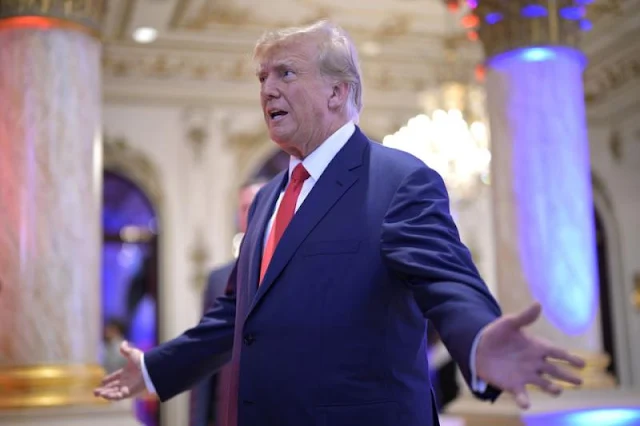Voters in countries ranging from Brazil to Israel and the United States were bombarded with inaccurate election-related material in 2022. Nevertheless, many people retaliated against the Trumpian tactic of disseminating conspiracies to erode confidence in the democratic process.
Pro-democracy campaigners claim that social media platforms like Twitter, Facebook, TikTok, and YouTube aren't doing enough to combat the threat of false information, which may include everything from "deep fake" movies to altered images meant to sway voters.
Candidates all around the world are copying Donald Trump's strategy by circulating allegations of election fraud. However, it appears that many voters in countries like the United States and Brazil have rejected this story.
In close races in November, a number of Trump's chosen candidates fell short, disappointing expectations of a Republican "red wave." Commentators have hypothesised that Trump's refusal to accept the outcome of the 2020 election may have alienated some voters.
Mike Caulfield, a research scientist at the University of Washington’s Center for an Informed Public, told AFP that Republican leaders and supporters “seem to be coming to terms with the way that embracing conspiracy theories has led to poor candidate selection, inefficient voter mobilisation, voter cynicism, and a host of other ills.”
“Many will try to wean their supporters off election fraud conspiracy theories… It’s going to be a very tough problem to solve.”
Similar to Trump’s allegations of election fraud without evidence, far-right incumbent Jair Bolsonaro made similar claims during Brazil’s election, which ended in a tense runoff in late October following an indecisive first round.
Although his socialist opponent Luiz Inacio Lula da Silva, ultimately won the runoff, popular trust in the electoral process remained high, according to polls.
However, experts warn that many people still believe Bolsonaro’s assertion and that the struggle against disinformation in the country is far from done.
Netanyahu’s Likud Party in Israel launched a “stop the steal” campaign when elections were called for in November, following in Trump’s footsteps.
According to Achiya Schatz, the head of the disinformation watchdog group FakeReporter, “Likud was pushing (the) conspiracy that the elections are rigged, that (the) deep state controls the central election committee of Israel.”
Netanyahu eventually won, and the veteran right-winger’s accusations of a rigged vote faded as he prepared to retake power after 14 months in opposition.
Trump, who publicly supported far-right Prime Minister Viktor Orban during the April elections marred by voter disinformation, heavily influenced Hungarian politics.
Fidesz, Orban’s party, “took maximum advantage of its media dominance” to “spread factually incorrect or otherwise misleading allegations and narratives about its political opponents,” according to a report by the Hungarian research tank Political Capital.
Orban, who has maintained friendly ties with Russian President Vladimir Putin, made some explosive claims about his opponents just before the vote, saying they “made a pact with the Ukrainians” to provide them with arms and support in the case of an opposition victory.
He provided no proof, and Fidesz won a resounding victory in the elections.
The spread of false information and propaganda tends to increase in the lead-up to elections everywhere, whether in the form of state-sponsored campaigns or non-state players trying to influence the outcome.
The number of election-related disinformation reached “unprecedented levels,” according to Rachel Khan of the fact-checking alliance Tsek.ph during the May presidential elections in the Philippines.
Fact-checking efforts were ramped up compared to past elections. Still, it didn’t stop the spread of false information, primarily directed at the two leading candidates: Ferdinand Marcos (who went on to win by a landslide) and Leni Robredo.
Khan added that the alliance’s efforts “had very little impact” on the elections. “I think the problem is media literacy. Even those who claim that they can distinguish disinformation actually cannot.”
William Ruto and Raila Odinga, two candidates for president in Kenya, have been accused of using “digital warriors” whose job is to propagate false information about the candidates and the election.
Over a year before the vote in August, fact-checkers saw a rise in the usage of “deep fake” videos with fabricated information.
Even though the Kenyan Supreme Court confirmed Ruto’s victory, many of Odinga’s followers still maintain that the election was fraudulent.
Deep fakes and altered images to malign political opponents are also prevalent online as Nigeria prepares for elections at the beginning of next year.
Meanwhile, experts in the United States are warning that, with Trump running for reelection in 2024, the 2024 presidential race might see a new round of disinformation concerning election integrity.
Verified Voting president Pamela Smith told AFP, “Disinformation is a tremendous tactic.” People who only support elections that go their way will continue to use it.



